First Pomeranian Scientists' Night A Big Success

What is low-temperature pyrolysis? Why do the oceans play a key role in climate change? What is liquefaction? How is the spontaneous combustion and auto ignition of flammable liquids measured? What are the indicators of pollution and how can we determine whether ordinary cooking salt is present in the sea? - these are just some of the questions that were answered at Gdynia Maritime University during Pomeranian Scientists' Night.
The first Pomeranian Scientists' Night took place on Friday 29th September 2023. It was the first such event in the Tri-City area.
The night included dozens of events, including scientific shows, tours of laboratories, workshops, and lectures. There was also no shortage of quizzes and competitions with awards.
For one night only, scientists stepped away from their daily tasks and ongoing research and opened up their workplaces to show that science is interesting, exciting, and open to everyone. Perhaps most importantly, it also proved that science is much more than heavy books with big words.
As part of the Pomeranian Scientists' Night, staff and students at Gdynia Maritime University organised the following workshops, lectures and presentations held both in the University's main building on Morska Street and in the Faculty of Navigation on John Paul II avenue in the centre of Gdynia:
- The role of the ocean and its pollution in climate change
- Pyrolysis as an effective method for the disposal of plastic waste
- Escape Room
- The Clean Sea Academy - cargo transport
- The Clean Sea Academy - Water Research
- The Clean Sea Academy - plastic degradation
- The Clean Sea Academy - waste-water treatment
- Visits to the Hall of Tradition
- Stowaway Passengers - live exhibits
- Navigation and Manoeuvring Simulator
- A. Ledóchowski planetarium
The most popular attractions were the Navigation and Manoeuvring Simulator, the Planetarium, and the Escape Room in the Programmable Control Systems Laboratory.
In total, more than 400 people took part in the events planned by the University.
We would like to thank all staff and students for their commitment and support in organising the event.
The event was run by the Medical University of Gdansk, and its partners are Gdansk University, Gdansk University of Technology, Gdynia Maritime University, the Polish Naval Academy, and two science centres - Experiment Science Centre in Gdynia and Hevelianum.
The project was financed by the State budget allocated by the Minister for Education and Science as part of the programme "Social Responsibility of Science II".











































